Skill Creativity
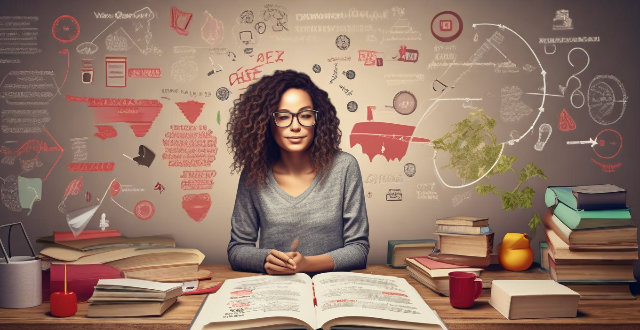
What are some effective ways to boost creativity ?
Creativity is the ability to come up with new and original ideas, solutions, or concepts. It is an essential skill that can help individuals in various aspects of life, including problem-solving, decision-making, and innovation. Here are some effective ways to boost creativity: embrace curiosity; take risks; collaborate with others; practice mindfulness; set goals and challenge yourself; find inspiration.

How can educational psychology be used to foster creativity and innovation in students ?
Educational psychology can be used to foster creativity and innovation in students by understanding their cognitive, emotional, and social needs. This involves encouraging curiosity, providing challenges, creating a safe environment, promoting resilience, collaboration, and valuing diversity. Teaching strategies such as inquiry-based learning and differentiated instruction can also enhance these qualities. Alternative assessments like portfolio assessment and performance tasks, along with formative assessment through feedback mechanisms and self-assessment, can further support creativity and innovation in students.
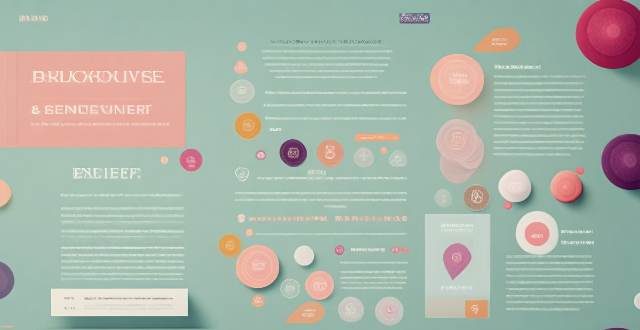
Is there a link between physical activity and improved creativity ?
The text discusses the potential relationship between physical activity and creativity, highlighting various studies and theories that support this link. It suggests that regular physical exercise can enhance creativity by improving blood flow to the brain, promoting a relaxed mental state, and providing necessary breaks from mentally demanding tasks. The text also explores practical implications for individuals and organizations, suggesting strategies such as integrating movement into daily routines and designing active workspaces to boost creative thinking. Overall, while more research is needed to fully understand the relationship between physical activity and creativity, the text encourages incorporating physical activities into daily practices to potentially enhance imaginative thinking and innovation.

What is the relationship between sports and creativity in literature ?
In literature, sports and creativity often intertwine to enrich storytelling. Sports provide a backdrop for character development, narrative structure, and themes that mirror life's struggles. Creative writers use literary devices and unique perspectives to enhance the portrayal of sports, offering emotional connectivity with readers. Examples like "Ender's Game," "Farewell to Arms," and "Personal Best" demonstrate how sports can serve as metaphors and settings for deeper explorations of human nature and society. This intersection allows authors to craft works that resonate on multiple levels, transcending genre boundaries.

Are there any specific habits or routines that can foster creativity ?
Creativity is a valuable skill that can be developed and nurtured through specific habits and routines. Here are some practices that can help you enhance your creative thinking: 1. Regular Brainstorming Sessions: Set aside time regularly to brainstorm, either alone or with a group. Solo Brainstorming: Write down every idea that comes to mind, no matter how silly or unconventional. Group Brainstorming: Encourage everyone to share their thoughts freely without immediate judgment. 2. Embrace Curiosity: Make it a habit to ask questions and seek answers. Learn Something New Every Day: Dedicate time each day to learn about a new topic or skill. Explore Different Perspectives: Try to understand different viewpoints and approaches to problems. 3. Incorporate Novelty: Introduce new experiences and challenges into your life. Travel: Visit new places and experience different cultures. Try New Hobbies: Take up a new hobby or activity that you've never done before. 4. Regular Reflection: Take time to ponder and analyze your thoughts and feelings. Journaling: Write down your thoughts, ideas, and experiences regularly. Meditation: Practice mindfulness meditation to clear your mind and increase awareness. 5. Collaborate with Others: Work with others to generate innovative solutions. Diverse Teams: Collaborate with people from various backgrounds and disciplines. Brainstorming Sessions: Host collaborative brainstorming sessions to generate new ideas together. 6. Maintain a Healthy Lifestyle: Prioritize self-care and well-being. Exercise: Engage in regular physical activity to improve cognitive function and reduce stress. Sleep: Ensure you get enough sleep to recharge your mind and body. By incorporating these habits and routines into your daily life, you can cultivate a more creative mindset and approach problems with fresh perspectives. Remember that creativity is a skill that can be developed over time, so be patient and persistent in your efforts.
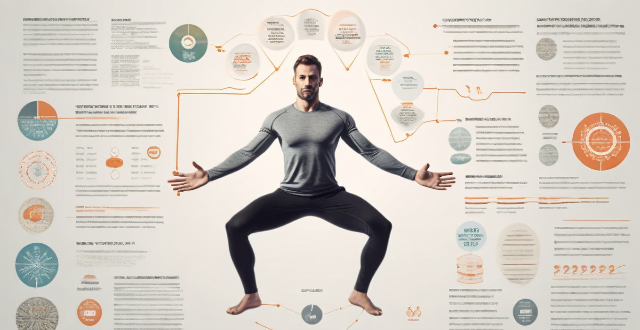
Are there any particular mental exercises that can make me more creative ?
Creativity can be enhanced through various mental exercises such as brainstorming, incubation, analogical reasoning, constraints, reverse thinking, cross-disciplinary learning, physical activity, and mindfulness meditation. These techniques help generate new ideas, foster inventive solutions, and improve cognitive function. By practicing these exercises regularly, one can develop creativity and innovation skills, leading to a more imaginative and productive mindset.

Can nutrition affect an athlete's skill level ?
Nutrition is vital for athletes' overall well-being and performance, including skill enhancement, recovery, and injury prevention. It affects cognitive function, physical performance, and recovery, ultimately influencing an athlete's skill level. A balanced diet with proper nutrients can help athletes reach their full potential and succeed in their sports.

What are some essential bartending skills for making great cocktails ?
Bartending involves a blend of technical skills, creativity, and customer service. Essential abilities include knowledge of spirits, mixology techniques, glassware selection, speed & efficiency, customer service, creativity & innovation, hygiene & safety, and teamwork. Mastering these skills elevates bartenders' performance, resulting in fantastic cocktails and an enhanced experience for guests.

Can playing multiple sports help in skill development ?
Participation in multiple sports can enhance overall athleticism and skill development by improving physical attributes, reducing injury risk, developing transferable skills, and promoting mental toughness. It also offers social benefits such as expanded networks and increased opportunities for exposure. While specialization has its advantages, playing multiple sports can help athletes become well-rounded competitors.

How important is rest and recovery in skill enhancement ?
The text discusses the importance of rest and recovery in the process of skill enhancement. It highlights the cognitive and physical benefits of taking breaks, such as improved mental clarity, memory consolidation, muscle recovery, and injury prevention. The practical implications include avoiding burnout, enhancing performance, and strategies for incorporating rest into practice schedules. Overall, the text emphasizes that rest is a crucial component of long-term skill development and should be given equal consideration alongside deliberate practice and training regimens.

How can team sports help in individual skill development ?
Team sports contribute significantly to individual skill development by improving communication skills, enhancing leadership abilities, increasing self-confidence, bettering time management, improving social skills, promoting physical fitness and coordination, providing opportunities to learn from mistakes, and fostering adaptability.

How do I choose a tennis training camp that fits my skill level ?
Choosing a tennis training camp that fits your skill level can significantly improve your game. Here are some tips on how to select the right camp: 1. Assess your current skill level by considering your experience, strengths and weaknesses, and fitness level. 2. Research different camps that offer programs specifically designed for your skill level using online directories, social media groups, and reviews from previous attendees. 3. Check the coaches' qualifications and experience, including their credentials, coaching philosophy, and track record of working with players at your skill level. 4. Consider the quality of the camp's facilities and amenities, such as well-maintained courts, access to equipment, and onsite amenities like locker rooms and dining areas. 5. Evaluate the camp's reputation and success rate by reading reviews, asking for referrals, and contacting the camp directly to learn more about their success stories.

Is speed reading a natural ability or a skill that can be learned ?
Speed reading is a topic of interest for many individuals who wish to improve their reading efficiency and comprehension. The question arises whether speed reading is a natural ability that some people possess, or if it is a skill that can be learned and developed through practice and training. While there may be some individuals who possess a natural ability for speed reading, it is generally accepted that speed reading is a skill that can be learned and improved upon through practice and training. By employing specific techniques and strategies, anyone can enhance their reading speed and comprehension, ultimately increasing their productivity and knowledge acquisition.
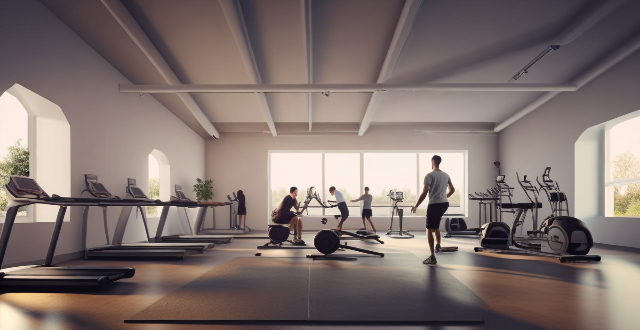
What role does creativity play in sports performance ?
Creativity plays a significant role in sports performance, enhancing problem-solving abilities, improving decision-making skills, and fostering mental toughness. Athletes who are creative thinkers can come up with innovative solutions to challenges, make split-second decisions that impact game outcomes, and stay focused under pressure. Moreover, creativity contributes to the development of new techniques and styles within sports, pushing boundaries and evolving the sport itself. By harnessing their creative potential, athletes can elevate their performance and achieve greater success.

How does lifelong learning impact career development ?
Lifelong learning is a continuous process of acquiring new knowledge and skills that can significantly impact career development. It enhances skills, adaptability, creativity, personal growth, networking opportunities, and career longevity. By engaging in lifelong learning, individuals can stay relevant in their professions, adapt to changing job requirements, and increase their chances of career success.

How can mind mapping improve creativity and problem-solving skills ?
Mind mapping is a tool that enhances creativity and problem-solving skills by providing a visual way to organize information. It stimulates brainstorming, enhances visualization, and promotes collaboration for creative thinking. Mind mapping also aids in problem-solving by identifying core issues, providing clarity and focus, and facilitating decision making.

What strategies can I use to overcome creative blocks ?
Overcoming Creative Blocks: Strategies and Techniques Creative blocks can be frustrating, but they're a common occurrence for many people. Fortunately, there are several strategies you can use to overcome them. In this article, we'll explore some of the most effective techniques for getting your creativity flowing again. Understanding Creative Blocks Before diving into strategies, it's important to understand what causes creative blocks. Here are some possible reasons: - Lack of inspiration - Fear of failure - Perfectionism - Stress and fatigue - Routine Strategies for Overcoming Creative Blocks Now that we know some potential causes, let's look at strategies for breaking through those barriers. Change Your Environment Sometimes a change of scenery is all it takes to spark new ideas. Try working in a different location, such as a coffee shop, library, or park. Even rearranging your workspace can help stimulate creativity. Take Breaks and Rest It's essential to give your mind time to recharge. Step away from your work and engage in activities that relax you, like taking a walk, meditating, or listening to music. Often, solutions come when you're not actively trying to find them. Set Small Goals Breaking down a large project into smaller, manageable tasks can help alleviate feelings of overwhelm. Focus on one small aspect at a time and celebrate each accomplishment. Embrace Imperfection Remember that creativity doesn't have to be perfect. Give yourself permission to create something messy or incomplete. You can always refine it later. Collaborate with Others Working with someone else can bring fresh perspectives and ideas. Brainstorm with friends, colleagues, or an accountability group. Their input might be just what you need to break through your block. Practice Mindfulness and Meditation Mindfulness exercises and meditation can help clear your mind and reduce stress, making it easier to access your creative thoughts. Even a few minutes of deep breathing can make a difference. Engage in Other Creative Activities Sometimes engaging in another form of creativity can spark ideas for your main project. Try drawing, writing poetry, or playing music – anything that gets your creative juices flowing. Use Writing Prompts or Creative Exercises Writing prompts or creative exercises can provide structure and guidance when you're feeling stuck. These can be found online or in books dedicated to helping artists and writers overcome blocks. Seek Inspiration from Other Art Forms Look at art, listen to music, watch movies, or read books in genres different from your own. Exposure to other forms of creativity can inspire new ideas and approaches in your own work. Keep a Journal or Sketchbook Regularly recording your thoughts, dreams, and ideas can help you tap into your subconscious mind. A journal or sketchbook becomes a repository for potential projects and solutions to creative blocks.
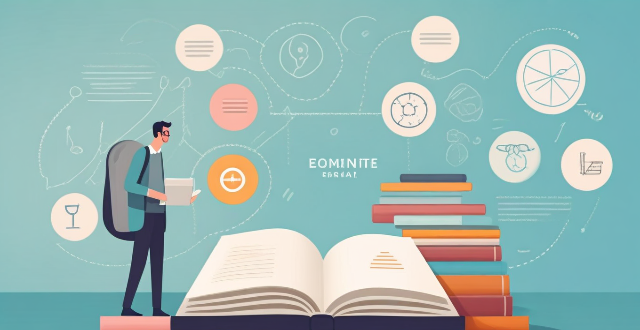
What are some effective techniques for improving my writing ?
Improving your writing skills involves a combination of reading, practicing, and receiving feedback. Regular reading helps in understanding different styles and techniques, while daily writing exercises such as journaling or crafting short stories enhance clarity and coherence. Grammar and vocabulary practice through exercises and learning new words are crucial. Seeking peer and professional feedback allows for constructive criticism. Revision is key, with multiple drafts and editing tools aiding in refining work. Studying writing techniques through courses and books deepens understanding. Setting writing goals, experimenting with different styles, and using writing prompts foster creativity and structured practice. Lastly, maintaining a healthy lifestyle supports mental clarity and creativity. Consistent effort and patience lead to significant improvements in writing skills over time.

What role does inspiration play in enhancing creativity, and how can I find it ?
The text discusses the importance of inspiration in enhancing creativity. It explains how inspiration can stimulate imagination, motivate action, expand perspectives, boost confidence, and enhance learning. The text also provides tips on finding inspiration, such as surrounding oneself with beauty, seeking out new experiences, engaging with art and culture, connecting with others, taking breaks and resting, embracing curiosity, keeping a journal, practicing mindfulness, staying open to possibilities, and cultivating a growth mindset.
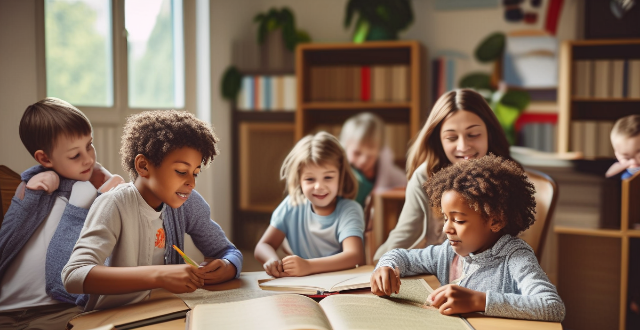
How can parents encourage creativity and critical thinking in their homeschooled children ?
To encourage creativity and critical thinking in homeschooled children, parents should create a stimulating learning environment by encouraging open-ended questions and providing varied resources. Engaging in creative activities like art and music can enhance visual-spatial skills and emotional expression. Promoting critical thinking through problem-solving tasks and family discussions can develop analytical skills. Fostering independent learning through project-based and inquiry-based learning encourages self-directed learning. Parents should also encourage questioning and curiosity, integrating technology into learning, promoting reading, and encouraging risk-taking and accepting failure to prepare their children for future challenges and successes.

How important is it to step outside of my comfort zone for creativity growth ?
The Significance of Exiting Your Comfort Zone for Creative Growth Stepping outside of one's comfort zone is often touted as a crucial element in personal development, especially when it comes to fostering creativity. This process involves venturing into unfamiliar situations or adopting new perspectives that can be initially challenging but ultimately rewarding. In the context of creativity growth, this approach is particularly important. Why Step Out of Your Comfort Zone? Encourages New Ideas - Exposure to Diverse Experiences: Interacting with different people and environments introduces you to new ideas and ways of thinking. - Increased Flexibility: Engaging in unfamiliar activities enhances your ability to adapt and think creatively. Promotes Problem-Solving Skills - Facing Challenges: Tackling obstacles outside your comfort zone builds resilience and improves your problem-solving abilities. - Learning from Failure: Making mistakes in new contexts provides valuable lessons that fuel creative solutions. Boosts Confidence - Overcoming Fears: Conquering fears associated with new experiences can significantly boost your self-assurance. - Expanding Capabilities: As you successfully navigate unfamiliar situations, you realize your potential and become more confident in your abilities. Practical Steps to Step Out of Your Comfort Zone Try New Things - Take Up a Hobby: Start an activity you've always been curious about but never tried before. - Travel Somewhere Unfamiliar: Visit a new place where the culture, language, or landscape differs from what you're used to. Challenge Yourself - Set Ambitious Goals: Create objectives that push you beyond what you believe you are capable of achieving. - Public Performance: Perform a task in public that you normally do privately, like speaking or playing an instrument. Embrace Uncertainty - Let Go of Control: Allow events to unfold without trying to micromanage every aspect. - Open-Ended Projects: Work on projects without a clear outcome, encouraging improvisation and adaptability. Conclusion Exiting your comfort zone is not just important for creativity growth; it's essential. By embracing uncertainty, trying new things, and challenging yourself, you open the door to a wealth of creative opportunities. These experiences not only enrich your life but also expand your capacity for innovation and original thought. So, step out boldly—the rewards of leaving your comfort zone far outweigh the initial discomfort.

How will the rise of automation and artificial intelligence affect employment opportunities in future cities ?
The rise of automation and artificial intelligence (AI) is expected to have a significant impact on employment opportunities in future cities. This transition will likely result in decreased demand for certain jobs, particularly those involving repetitive tasks or moderate skills, while increasing the need for specialized skills in areas like software development and data analysis. To adapt to these changes, strategies such as lifelong learning, job retraining programs, and collaboration between businesses and educational institutions are recommended. It is crucial for individuals, governments, and businesses to proactively prepare for these shifts to ensure a diverse and resilient workforce.
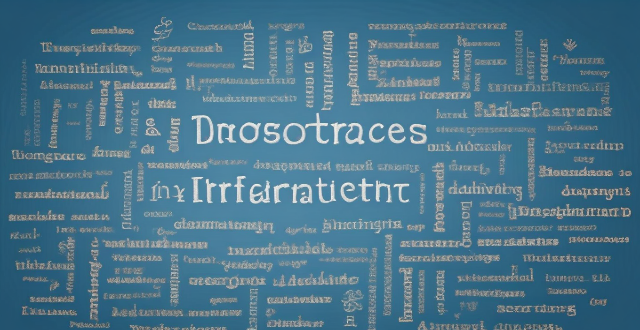
Can critical thinking training be applied to all aspects of life ?
This text discusses the importance of critical thinking and its applications in various aspects of life, including personal, professional, educational, and social settings. It emphasizes that critical thinking is a universally applicable skill that enhances decision-making abilities and promotes effective communication, creativity, and innovation. By incorporating critical thinking training into daily activities, individuals can improve their overall quality of life and contribute more effectively to society.
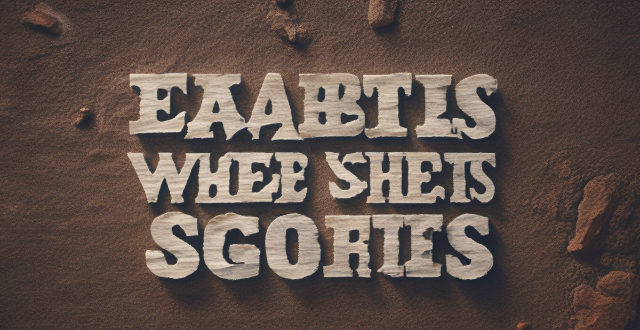
Can sports be considered a form of art expression ?
This text explores the debate over whether sports can be considered a form of art expression. It discusses the aesthetic nature of sports, including visual and auditory aesthetics, as well as their emotional impact on spectators. The text also examines creativity and expression in sports, highlighting individual style, improvisation, and innovation. Furthermore, it touches upon the cultural significance of sports, such as symbolism and social commentary. In conclusion, while sports primarily focus on competition and skill demonstration, they possess many elements that align them with traditional definitions of art, making it plausible to view them through an artistic lens.

Are tennis training camps effective for children and teenagers ?
Tennis training camps can be an effective way for children and teenagers to improve their skills and develop a love for the sport, depending on factors such as quality of instruction, level of commitment, and overall environment. Benefits include skill development, learning new techniques, building confidence, and socializing with other young players.

What are the benefits of taking a cooking class while on vacation ?
Taking a cooking class while on vacation offers numerous benefits, including improved culinary skills, cultural immersion, social experiences, personal growth, and health benefits. Learn new techniques and local cuisine, understand traditions, practice language skills, meet new people, build confidence, enhance creativity, incorporate healthy habits, and relieve stress.

What skills do I need to pursue a career in green energy ?
To pursue a career in green energy, one needs to have an understanding of renewable energy sources, familiarity with energy systems, proficiency in relevant software, data analysis and modeling skills, mechanical and electrical engineering skills, project management, sustainability practices, research and development. In addition, soft skills like communication, teamwork, problem-solving, adaptability, leadership, negotiation, creativity, perseverance, global awareness, and continuous learning are also essential.
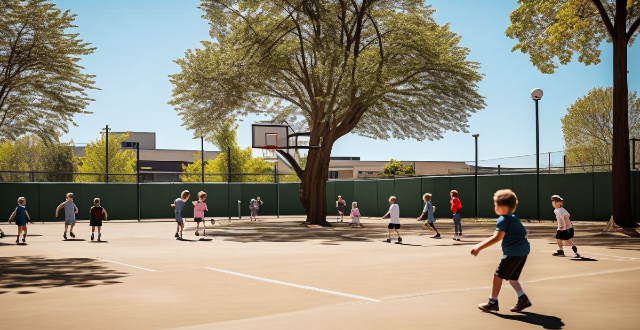
Are there specific sports that improve academic performance in children ?
The article discusses the potential benefits of different types of sports on academic performance in children. It highlights team sports like basketball, soccer, and volleyball for their ability to teach social skills, time management, and discipline. Individual sports such as swimming, tennis, and gymnastics are noted for promoting self-discipline, goal setting, and mental toughness. Outdoor sports like hiking, cycling, and rock climbing are mentioned for providing physical activity, stress relief, and exploration opportunities. The conclusion emphasizes the importance of considering individual differences among children when encouraging sports participation for academic improvement.

What steps should I take to achieve my career goals ?
Achieving Your Career Goals: A Step-by-Step Guide outlines a comprehensive strategy for reaching professional objectives. It starts with defining goals by identifying interests, skills, values, and setting SMART objectives. Researching industries, networking, and understanding potential employers are emphasized. Acquiring relevant skills through education and developing soft skills is crucial. Gaining experience through internships, volunteering, and seeking mentorship is advised. Building a professional brand involves creating strong resumes, establishing an online presence, and active networking. Strategic job applications require customization and thorough interview preparation. Continuous assessment and adjustment of the career plan, staying informed, and being open to new opportunities are essential for success. Patience, perseverance, and adaptability are key traits for achieving career goals.
![How has [insert celebrity name]'s education influenced their career in entertainment ?](/imgs/2f8b31ee-f62a-46e3-8828-37a4af062f9b.png)
How has [insert celebrity name]'s education influenced their career in entertainment ?
Education plays a crucial role in shaping an individual's career, and this is no different for celebrities. In this article, we will discuss how [insert celebrity name]'s education has influenced their career in the entertainment industry. [Insert celebrity name] started their educational journey at [insert school name], where they developed a strong foundation in various subjects such as [insert subjects]. This early exposure to diverse subjects helped them develop critical thinking skills and creativity, which are essential for success in the entertainment industry. After completing their secondary education, [insert celebrity name] pursued higher education at [insert university/college name], majoring in [insert major]. During their time at university, they were exposed to various aspects of the entertainment industry, including [insert relevant courses or experiences]. This exposure not only broadened their knowledge but also helped them establish valuable connections within the industry. The education that [insert celebrity name] received has played a significant role in developing their skills and expertise in the entertainment industry. For example, their major in [insert major] has helped them understand the technical aspects of filmmaking, music production, or other related fields. Additionally, their coursework in [insert relevant courses] has honed their abilities in areas such as storytelling, character development, and audience engagement. Higher education institutions often provide opportunities for students to network with professionals in their field of interest. [Insert celebrity name] took advantage of these opportunities by participating in events such as workshops, seminars, and internships. These experiences allowed them to build relationships with industry professionals who could offer guidance, advice, and potential job opportunities. The education that [insert celebrity name] received has also contributed to their ability to think creatively and solve problems effectively. The study of subjects like [insert relevant subjects] has helped them approach challenges from different perspectives and find innovative solutions. This skill is particularly useful in the fast-paced and constantly evolving entertainment industry. In conclusion, [insert celebrity name]'s education has significantly influenced their career in the entertainment industry by providing them with a strong foundation in various subjects, exposing them to different aspects of the industry, and helping them develop essential skills such as creativity, problem-solving, and networking. As a result, they have been able to thrive in their chosen field and make valuable contributions to the entertainment world.